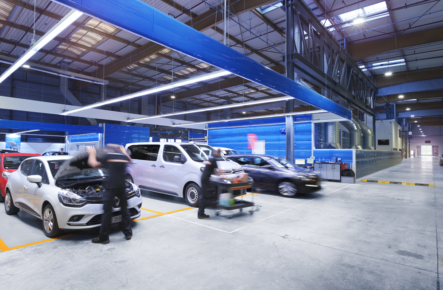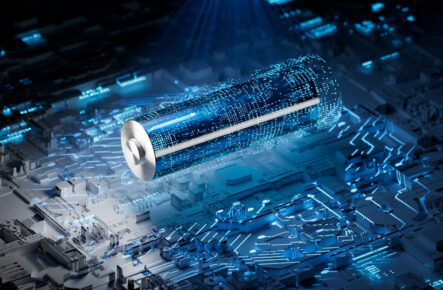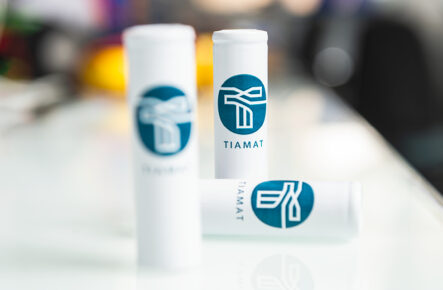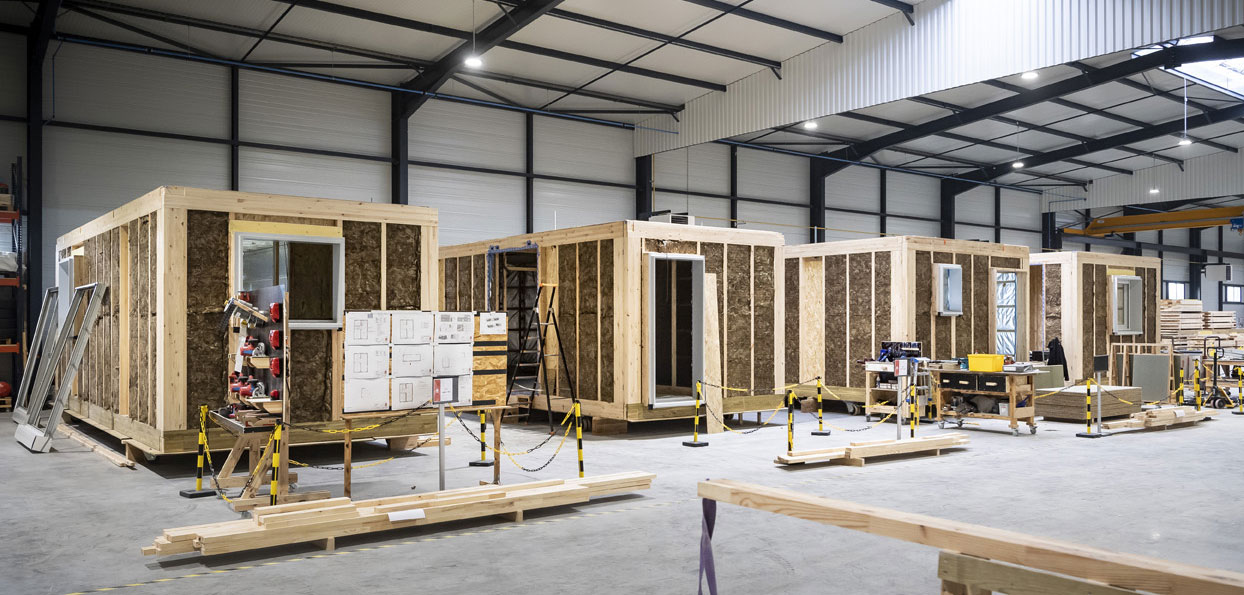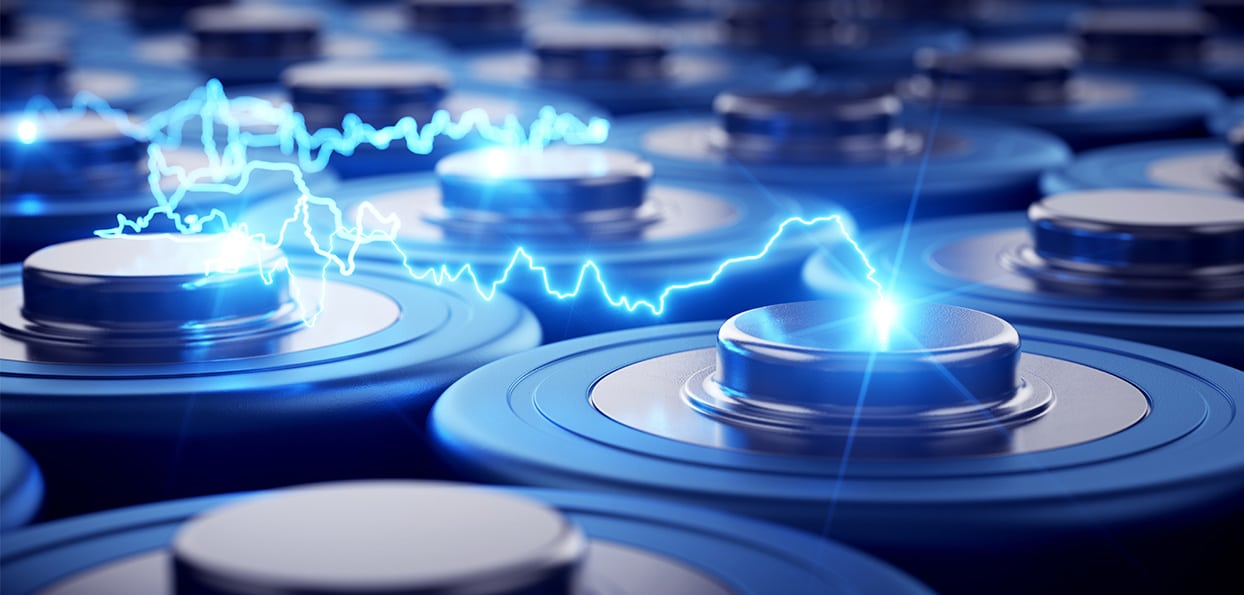Verkor is building the 1st gigafactory for low-carbon battery cells in Haut-de-France
Who is Verkor?
Verkor, the Grenoble-based start-up company created in 2020 by 6 founders with experience in the international mobility industry, has experienced tremendous success, as has its project. They develop low-carbon batteries for electric vehicle markets and large-scale stationary storage.
The low-carbon battery gigafactory project
To carry out its large-scale industrialisation project, Verkor chose to build its gigafactory in Dunkirk. It is the 1st low-carbon gigafactory in France. Based on the Tesla model, the factory, which will cover 500,000 m², will be able to supply up to 300,000 vehicles per year with high-performance electric batteries. The project represents around €1.5 billion in investment, will enable the creation of 1200 direct and 3000 indirect jobs, and will cover a colossal area of over 150 hectares.
Project timeline:
- July 2020: Creation of the Verkor company
- 2021: First round of fund-raising: 100 million Euros
- Late 2022: Installation of a control line in Grenoble
- 2023: Fund-raising: an extra 1 to 1.5 billion Euros
- 2024: Opening of the first gigafactory
- 2025: Release of the first vehicle equipped with a Verkor battery
- 2030: Production of 50 gigawatt hours, i.e. the equivalent of 1 million light Renault Zoé-type electric vehicles
An explosive growth
In 2021, Verkor carried out its first round of investments by raising 100 million euros. The start-up is supported by international leaders like Schneider Electric, Arkema, Capgemini and the Idec Group. But the company’s main partner is Renault, which owns 20% of the company. Verkor will eventually equip “15,000 to 200,000 cars per year” for the diamond brand, Philippe Brunet specified, who is a member of the Verkor supervisory board and the Director of Combustion and Electric Powertrain Groups at the Renault Group. This represents 10 gigawatt hours out of the 50 that the young company plans to generate by 2030. The young start-up’s ambitions are overflowing. “We will have 100 employees by the end of the year, 1200 in two years’ time and 8000 by 2030”, claims the Chairman, Benoit Lemaignan.
A booming market supported by a very strong political will
The ambition and growth of Verkor reflects the market trend of electric vehicles. A market whose growth is exponential (63% growth compared to 2020) and is only in its early stages (100% electric vehicles represent 11.2% of recorded vehicles in Western Europe in 2021). A market that is also supported by very strong European public policies. The European Commission has announced the end of new combustion engine cars for 2035. In parallel, Europe strives to support the emergence of its champions faced with competition from Asia, which has virtual monopoly of the current market. A new regulation aims to penalise batteries whose carbon footprint is too high.
Dunkirk: the perfect location for Verkor’s gigafactory
France: a competitive location
And yet, this implementation project wasn’t exclusively restricted to France. The start-up conducted a location study involving 40 potential sites in Western Europe.
Indeed, the project’s high level of automation means that it is not dependent on low-cost countries, which present the double disadvantage of a remote geographical location and a high-carbon energy production.
Christophe Mille, co-founder of Verkor, explained that “the cost of work only represents 5 to 10% of the manufacturing cost of a battery, compared to 70% for materials and 20 % for energy and write-offs.” The company aims to activate 2 direct levers to be more competitive:
- Use robotisation, artificial intelligence and data optimisation
- Increase the recyclability of products: 20% of waste today compared to an aim of 10% once the project is fully operational.
Dunkirk’s advantages to meet Verkor’s needs
To accomplish its project, the site chosen by Verkor needed to respond to 3 very specific issues:
- Be close to major roads
- Have an employment breeding ground
- Quickly benefit from very high electrical power
Dunkirk perfectly perfectly responds to these issues. The Grand Port Maritime de Dunkerque (port of Dunkirk) is the largest industrial-energetic platform in Europe notably thanks to the presence of the largest nuclear power station in Western Europe and the brand new electrical substation in the major industrial area of the western port (eventual power of 110 MW). It can supply highly energy-consuming industrial sites.
The very strong industrial and automotive culture in the Hauts-de-France region is also a reassuring advantage in terms of employment.
Finally, the Grenoble-based company will be able to take advantage of Dunkirk’s strategic position, as it is lies at the intersection between Europe’s major transport routes.
It should also be noted that 50% of the European automotive industry is concentrated within a 600km radius of the Hauts-de-France region. An attractive position for Verkor’s commercial prospection.
The Hauts-de-France region to become the “Giga Valley”
In 3 years, the Hauts-de-France region has accomplished the feat of establishing 3 electric battery gigafactory projects on its soil.
In 2020, the ACC project (Automotive Cells Company), jointly supported by Stellantis andTotal/Saft, announced its establishment in Douvrin. Operations are due to begin in 2023.
In 2021, the Sino-Japanese group Envision, selected by the Renault group to equip its future electric vehicles, announced the establishment of its gigafactory in close proximity to the Renault Douai factory.
In 2022, the announcement of Verkor’s gigafactory definitively confirmed the attractiveness and competence of the Hauts-de-France Region.
With 3 battery gigafactories within a 100km radius, the Hauts-de-France Region is rising in rank to become the European “Giga Valley”, providing development opportunities to this whole new sector. The next step will involve welcoming upstream (cathodes, anodes, separators, etc.) and downstream (recycling) industrial activities, in order to have a complete industry.
The global market needs competitive players. Europe, with the Hauts-de-France Region at its core, has all the assets to develop international champions.

